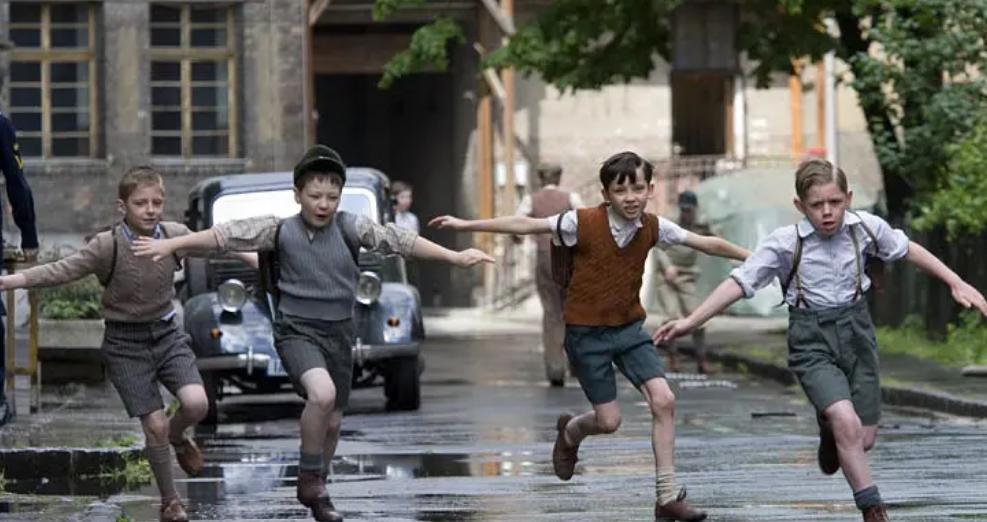Today we are going to talk about the movie "Boy in striped pajamas", if the beginning of the film does not appear those dazzling flags, you will be really touched by the warmth in front of you. Bruno and his companions roam freely through the neighborhood, home to a respectable father and loving mother who are military officers.
For him, who was only eight years old, war was a distant affair until he met Shmuel, whose name was "weird". Yeah, his name was so strange that Bruno had never met one before, but he wouldn't know it was because Shmuel didn't belong here. A huge lie was fabricated, and the Jews "deservedly" became the enemy of Germany's prosperity. Standing in the present and looking back at the past, this story is so absurd and even vulnerable, but when it is disguised as "patriotic" and "loyal" and placed in that moment, the absurd becomes the truth, and the humanity becomes nothingness.

Before the tragedy, the commander may not be able to understand the mother's resistance and his wife's tears, he will only make them laugh. What grieves me the most in the film is this weeping mother, who grieves not only for her children, but also for the Jews on the "farm." She is a coward, which is why she suffers and blames herself after Pavel's tragic death, or she is powerless to witness her daughter gradually becoming strangers and even losing her son. But we are not qualified to condemn her, "everyone is drunk and she is awake", this powerlessness is enough to crush a person with a clear conscience. When she sincerely says "Thankyou" to Pavel, the end of her departure is inevitable.
The old man who peeled the potatoes should have saved his life, not died under his fists and feet; the boy who wiped his wine glass should have sat in the classroom and read a book, not been beaten for "stealing"; the boy who was forced to indoctrinate thoughts should have been an explorer, not an ignorant death in the gas chamber... Inside and outside the walls should have been equal, and striped pajamas carried too many innocent souls. The saddest thing is that no matter who you are, you're on a dead end when you put on your striped pajamas. In particular, at the end, they were huddled into the gas chamber that the boys thought was sheltered from the rain and bathed on a rainy day. As my parents traced my way closer to the climax of the boy's respective time race, my inner conflict reached its extreme.
The boy will die, and the dramatic effect is also reasonable to the extreme. Everyone came to this world naked, there was no difference, and when the son of a German officer changed into the same striped pajamas as the son of a Jew, he was no longer recognizable, and naturally he could be poisoned by poison gas. The behavior of the so-called enemy finally punished his entire family. The film conveys the deepest anti-war ideas in a calm tone, and war destroys more than just the enemy. The whole story tells a complete tragedy, "there is no winner after the gunshot", and in the midst of lies, anyone's life is a fragment of tragedy. Perhaps the director wants to borrow a series of behaviors from Bruno, naïve, childlike ideas that want to make friends, and cleverly express his dissatisfaction with that period of history!